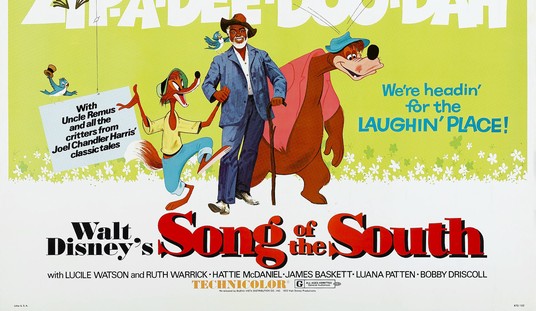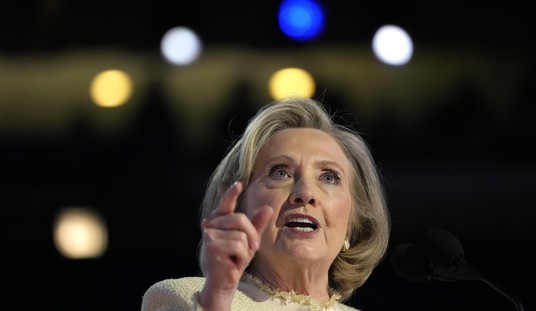Sen. Mike Lee (R-Utah) today unveiled a plan for a conservative-led effort to fight poverty, arguing that the right needs to offer alternatives to failing programs instead of just criticizing them.
Noting that the 50th anniversary of President Lyndon Johnson’s famous “War on Poverty” speech approaches, Lee highlighted last week’s Census Bureau report stating more than 49 million Americans still live below the poverty line.
“Today, a boy born in the bottom 20% of our income scale has a 42% chance of staying there as an adult. According to the O.E.C.D., the United States is third from the bottom of advanced countries in terms of upward economic mobility,” he said at the Capitol Hill forum sponsored by the Heritage Foundation.
“…I believe the American people are poised to launch a new, bold, and heroic offensive in the war on poverty… if a renewed conservative movement has the courage to lead it.”
Lee said the War on Poverty was launched not in 1964, “but in 1776: when we declared our independence, and the self-evident and equal rights of all men to life, liberty, and the pursuit of happiness.”
The senator argued for a community spirit in battling poverty, saying “the conservative vision for America is not an Ayn Rand novel; it’s a Norman Rockwell painting, or a Frank Capra movie: a nation ‘of plain, ordinary kindness, and a little looking out for the other fellow, too.'”
“Organic communities formed within the free market and civil society’s networks of opportunity are not threats that poor families need more protection from. They are blessings that poor families need more access to,” Lee said. “Poor farmers and trappers in Lincoln’s Mid-West were no worse at their trades than their more affluent counterparts back east. They just didn’t enjoy the same access to networks of human, social, and economic capital. In the same way, poor children today do not lack the ability to acquire the knowledge and skills necessary to flourish in our market economy and civil society. But they absolutely lack the same access to the networks of human opportunity where that knowledge and those skills are acquired.”
Lee also blamed government policies that “unintentionally discourage almost every positive step underprivileged families can take toward social mobility and economic security,” including a system that “penalizes low-income workers for making more money by drastically reducing benefits at arbitrary points along the income-scale.”
To “first and foremost” help the poor, he said, “we should at least pledge to do no more harm.”
“There is no good reason the federal government should maintain 79 separate means-tested programs. There is no good reason why almost none of these programs feature the kind of work-requirements that helped transition millions of Americans into jobs after the 1996 reform. And there is no good reason federal policy should reward states for higher spending rather than improved results,” the senator continued. “…Second, just as we cannot spend our way out of poverty, we cannot really cut our way out, either. We need to fundamentally fix the system so that every dollar we do spend actually connects underprivileged families to new opportunities in the free market and civil society.”
“In Utah, for instance, our legislature has created a special task force to study the prospects of ‘charity care’ – affordable medical services for poor families provided not by government but by individuals, businesses, non-profit groups, and local communities. That model might not work in every state – but every state should have the freedom to solve problems their own way, according to their own values and priorities.”
Lee stressed that criminal justice reform is an integral part of a conservative anti-poverty plan.
“If inmates are violent and threats to our communities, then we have a moral responsibility to keep them locked up. If they are not violent and pose no threat, however, if they have reformed and are ready to return to their families and communities, we have just as much moral duty to get them re-integrated into our nation’s networks of social and economic mobility,” he said. “I’m working on bipartisan legislation to reform federal sentencing and incarceration policies, following the transformative example of innovative states. If we are serious about access to opportunity for all, then we have to put ‘rehabilitation’ back into the vocabulary of the federal prison system.”
Lee said that too many in the GOP “seem to have convinced themselves that electoral success depends on adopting the Left’s strategy of dividing the American people: slice them up into superficial identity groups, and assume that struggling African-Americans, struggling Latinos, struggling Asian-Americans, struggling whites, struggling single parents, struggling unskilled workers, struggling young people, struggling immigrants, and struggling blue collar workers all want different things.”
“…I have no idea if empowering poor families – regardless of what they look like – to overcome poverty through the cooperative communities of the market economy and civil society will help the Republican Party. But I do know it will help the American people – which is what the Republican Party is supposed to be for.”









Join the conversation as a VIP Member